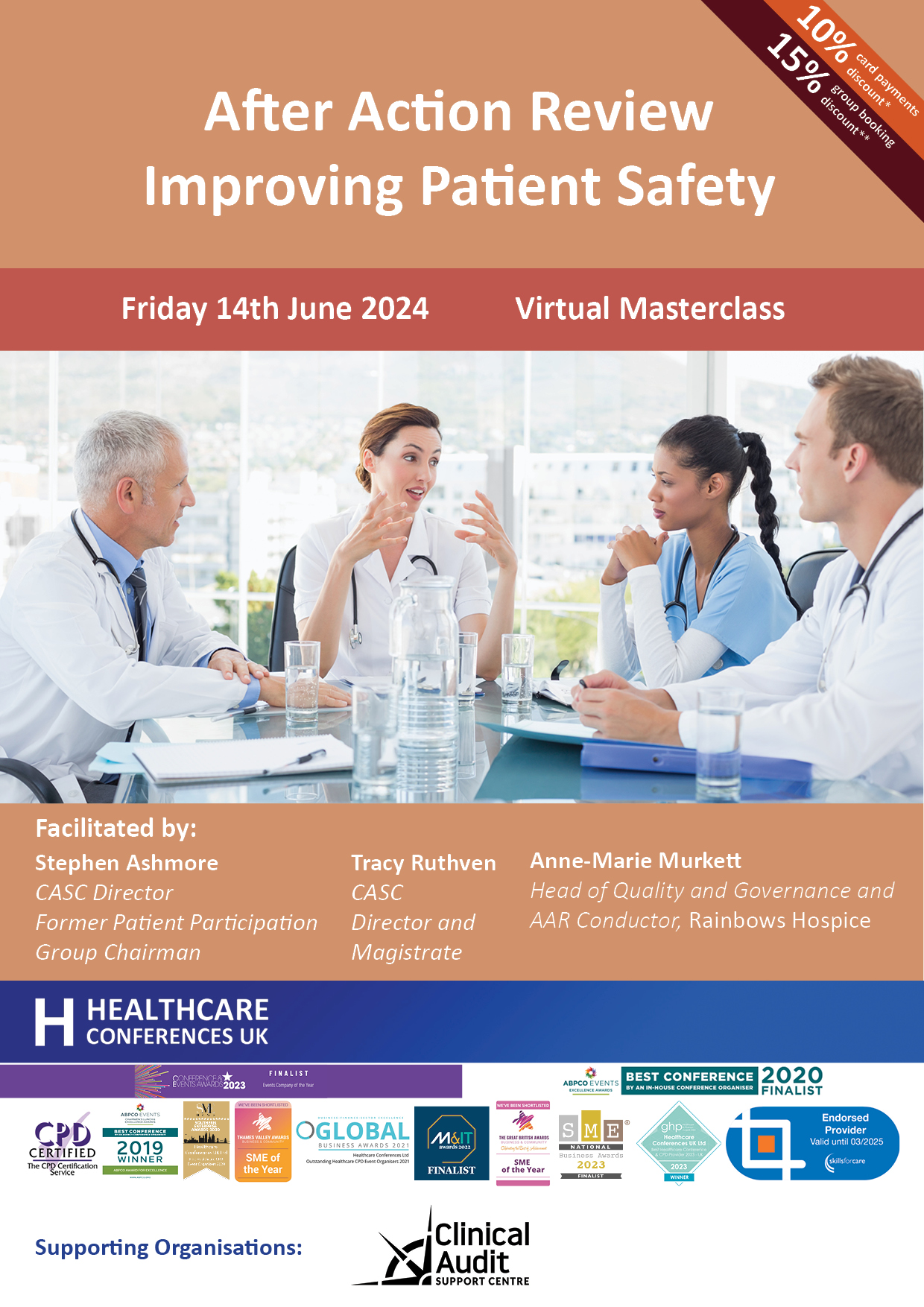An After Action Review (AAR) is a facilitated discussion following an event to understand what happened and why. AARs involve key stakeholders involved in the incident and provide insight into how improvements could be made to help deliver safer care for patients. The AAR process emphasises the importance of a facilitated approach with all participants encouraged to work collaboratively to identify possible changes and improvements. AARs provide all participants with an opportunity to reflect and consider opportunities for self-learning.
AARs are gathering momentum within healthcare particularly since the approach was identified as one of the national learning response methods within NHS England’s Patient Safety Incident Response Framework (PSIRF) documentation. The workshop will commence by looking at a brief history of AAR across the globe and its recent transition as an approach to help healthcare teams better understand their patient safety incidents. The core part of the day will focus on the four questions involved in conducting an effective AAR and learners will be given the chance to put learning into practice by looking at relevant case studies and scenarios in small groups. The day will conclude with an honest assessment of AARs and consider the challenges and benefits of utilising this team approach in a healthcare setting.
This course is aimed at those who wish to lead and conduct AAR reviews plus those who are likely to take part in AAR investigations. The facilitators for this course will continue the journey beyond the course itself to support and enable you to develop your skills in AAR when you return to your organisation.
KEY LEARINING OBJECTIVES
This masterclass will enable you to:
Understand history of AARs and why they are gathering momentum in healthcare
Appreciate what an AAR is and how it differs from other incident investigation methods
Identify when it is appropriate to conduct an AAR
Examine what skills effective AAR conductors require
Understand the four fundamental questions involved in conducting an AAR
Develop your AAR skills via a number of case studies and scenarios
Consider how human factors can play a part in the AAR process
Examine why AAR can be an effective mechanism for change and improvement
Discuss the strengths and weaknesses associated with AARs
Evaluate where you consider you can gain the most from undertaking AAR








